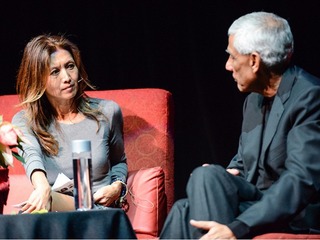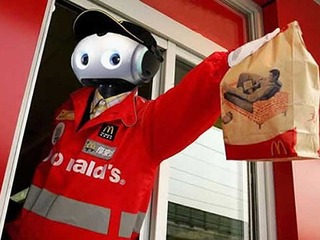The FDA outlines draft guidance on AI for medical devices
The agency also published draft guidance on the use of AI in drug development
Read more...
There's been a lot of talk about automation and what it means for the future of the economy and the workforce. Most of that commentary has come tinged with a great deal of fear and trepidation over the potential for lost jobs and wages.
But what's the reality of the situation? Sure, most people think that robots will have taken our jobs 50 years from now, but is that actually the case? A new report out from McKinsey & Co. has the answer, and it may not be as bad as some had feared.
Looking at over 2,000 work activities for more than 800 occupations, based on data from the US Bureau of Labor Statistics and O*Net, McKinsey found that, automation will "eliminate very few occupations entirely in the next decade."
That sounds optimistic, but there's a flip side: even if they aren't going to go away entirely, almost every single job will be impacted by automation. How big that impact will be depends, of course, on which job you have.
One determining factor is what calls McKinsey "technical feasiblility," or the percentage of time that is spent on activities that can be automated. The ratio is fairly easy to get: the more time a worker spends performing tasks that can be automated, the more likely they are to be replaced by a machine.
There's more to it than that, though, so McKinsey broke it down into five different categories, of least to most vulnerable, depending on the type of work that it being done.

The most vulnerable are those that do "predictable work," meaning those where "workers carry out specific actions in well-known settings where changes are relatively easy to anticipate." It's repetative, and easy for a machine to understand, given the lack of variables. That includes manufacturing, food service and accommodations, and retailing.
That is opposed to unpredictable work, which can include construction, or raising animals, where there are numerous decisions that have to be made, depending on the conditions.
McKinsey predicts that 78 percent of the predictable jobs will become automated, at least in the short term.
The other vulnerable set are those whose job involves a lot of data, and that may hit sectors you might not have thought of as being at risk for automation, including stock traders and investments bankers who "live off their wits," yet also spend half of their time collecting and processing data.
It may also hit those in the insurance field, as well as securities and financial sales agents, and bank tellers (though I think that last one already happened with the invention of the ATM).
Nearly half of the work that these professionals do can be automated. So it may not be that their jobs are eliminated entirely, it's just that fewer of them will be necessary to do the same amount of work.
Those whose jobs seem to be most safe, or at least at the least risk of being replaced by a robot, are those where you have to interact with people more, or be more creative.
"These activities, often characterized as knowledge work, can be as varied as coding software, creating menus, or writing promotional materials," said McKinsey, noting that the two jobs that are at the far end of being replaceable are healthcare and education.
Overall, only 36 percent of what healthcare workers do can be automated, which becomes even lower when it comes to registered nurses. For education, that number drops to 27 percent. In both of these cases, jobs like cafeteria worker or janitor can be replaced, but not the doctor or the teacher.
While I feel pretty secure in my position (do you think a robot could have written this article?) I can't help but feel a little bit worried about what this automated future means for me.
I hope its not too late for me to get my medical degree!
(Image source: heiscomingblog.wordpress.com)
The agency also published draft guidance on the use of AI in drug development
Read more...The biggest focus areas for AI investing are healthcare and biotech
Read more...It will complete and submit forms, and integrate with state benefit systems
Read more...
